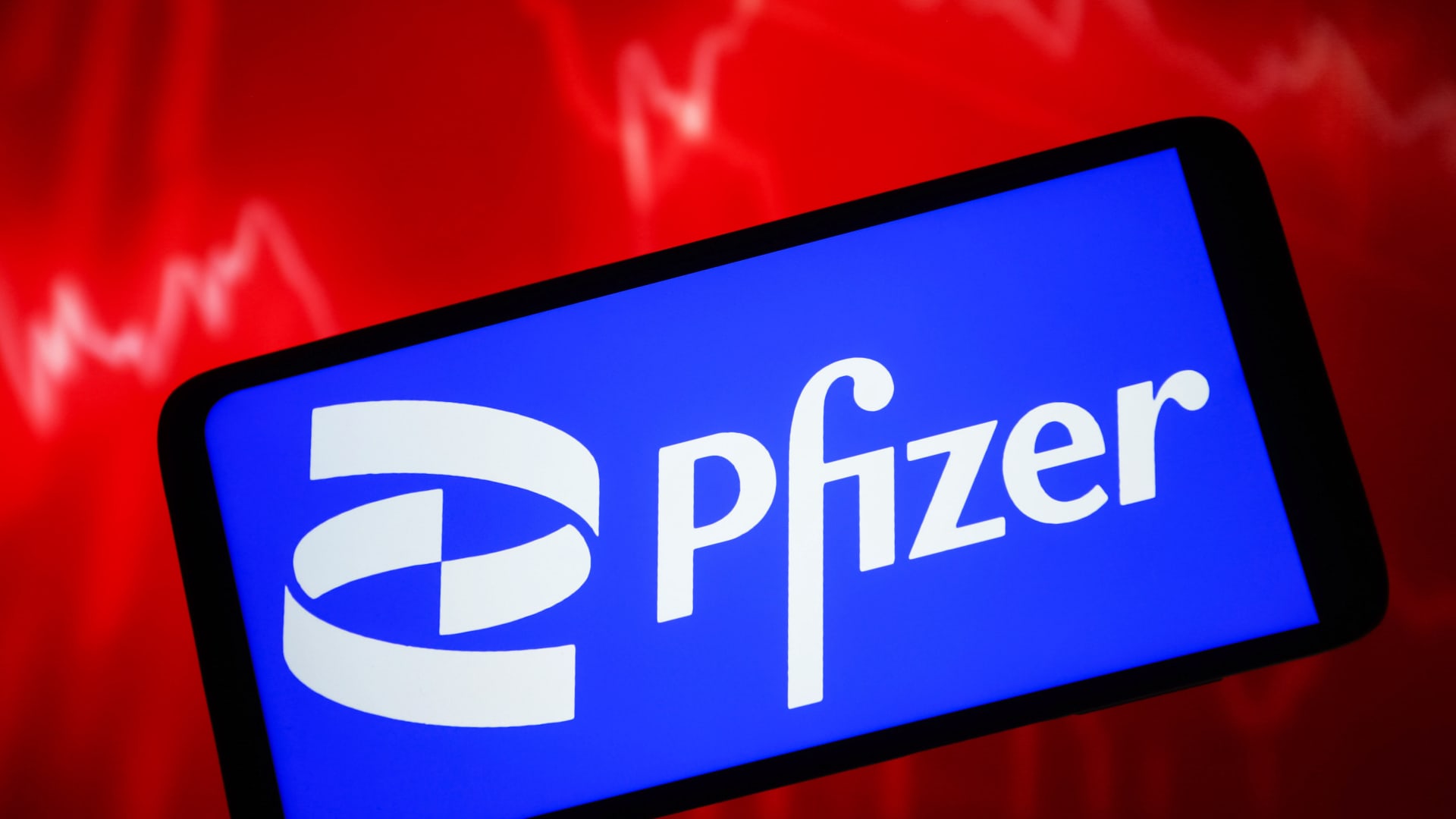Pavlo Gonchar | Lightrocket | Getty Images
Pfizer announced on Monday that it will discontinue the development of its experimental obesity and diabetes pill, lotiglipron. This decision was made due to increased levels of liver enzymes observed in patients who took the drug once a day during mid-stage clinical studies.
Higher levels of liver enzymes often indicate liver cell damage. However, Pfizer clarified that the patients did not experience any symptoms or side effects related to liver issues.
Following this announcement, Pfizer’s stock dropped approximately 3.5% in premarket trading.
The company will now focus its efforts on another oral obesity drug, danuglipron, which is currently undergoing a fully enrolled phase two clinical trial. In a recently published study, Pfizer revealed that high-dose versions of danuglipron taken twice a day for 16 weeks resulted in reduced body weight among patients with Type 2 diabetes.
Pfizer plans to finalize the details of the phase three clinical trial program for danuglipron by the end of 2023. Additionally, the company is developing a once-a-day version of danuglipron as an alternative.
“We look forward to analyzing the danuglipron Phase 2 results and selecting the dose and titration schedule that will maximize the therapeutic benefit and safety and tolerability,” stated William Sessa, Pfizer’s chief scientific officer of internal medicine, in a press release.
Lotiglipron, danuglipron, and Novo Nordisk‘s weight loss injections, Ozempic and Wegovy, belong to a class of drugs known as glucagon-like peptide-1 agonists.
These drugs mimic a gut hormone called GLP-1, which signals to the brain when the body is full. Moreover, they can aid in the management of Type 2 diabetes by promoting insulin release from the pancreas and lowering blood sugar levels.
Oral drugs like Pfizer’s danuglipron offer an advantage over frequent injections. Other pharmaceutical companies, such as Novo Nordisk and Eli Lilly, are also developing their own experimental oral drugs for obesity and diabetes.
This new class of obesity drugs has garnered public interest and triggered a gold rush in the weight loss industry. However, their accessibility remains uncertain, and there are still questions about the duration of treatment required to sustain weight loss.
Some individuals who discontinue the drugs report difficulty in controlling weight rebound.
According to the National Institutes of Health, over 2 in 5 adults suffer from obesity, with approximately 1 in 11 adults experiencing severe obesity.
Denial of responsibility! VigourTimes is an automatic aggregator of Global media. In each content, the hyperlink to the primary source is specified. All trademarks belong to their rightful owners, and all materials to their authors. For any complaint, please reach us at – [email protected]. We will take necessary action within 24 hours.


